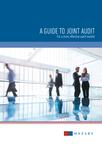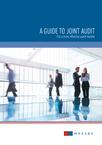Creating a Vibrant Audit Market for Public Interest Entities
Rebuilding trust in audit
Trust in audit is crucial if it is to be of value to stakeholders and wider society. There are, however, currently significant differences between the assurance audits are providing and what is sought from them. Concerns exist, for example, about the extent to which audits successfully identify frauds and material misstatements, and on conflicts of interest - whether perceived or actual. Relevance is another area of focus with the requirements generally limited to the financial statements even though most of the value of modern businesses lies in their intangibles which are generally not properly dealt with in the accounts. More broadly, fuller consideration needs to be given to issues surrounding sustainability. As seen in other industries, a fully competitive market with capable newcomers is much more likely to deliver the necessary innovation.
Risks from excessive levels of concentration
Substantial risks flow from just four firms having a dominant market share of the PIE audit market. Avoiding perceived commercial conflicts of interest is becoming increasingly difficult even where current Ethical Standards are formally satisfied as consulting and other non-audit services account for an ever larger proportion of the largest firms’ businesses. The ‘too few to fail’ threat to effective regulation is also very present due to the problems that would arise were one of the largest firms to exit the market, for whatever reason. Moreover, for some PIEs, the number of these firms that are potential auditors is already less than four due to conflicts arising from consulting and other relationships.
Deep-rooted resistance to a more open audit market
The largest firms enjoy a number of advantages over challenger firms when tendering for audits relating to their size and their brand recognition and familiarity including that arising from having powerful alumni networks. There is also a marked level of subliminal bias against challenger firms.
In addition, there is a clear reluctance to appoint firms as auditors to major PIEs that do not already have a significant share in this market thereby perpetuating the problem.



